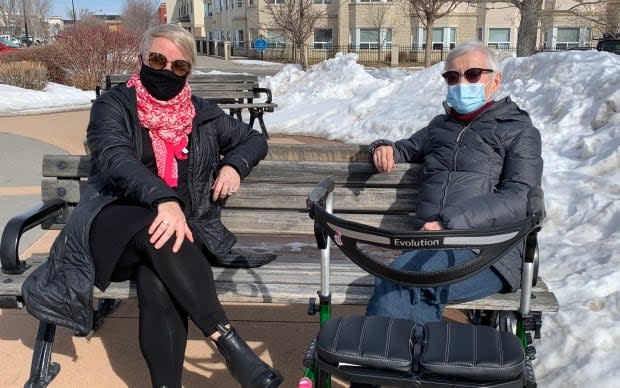White paper angels tacked on door after door: Lives changed, lives lost in a year of COVID-19 in Alberta
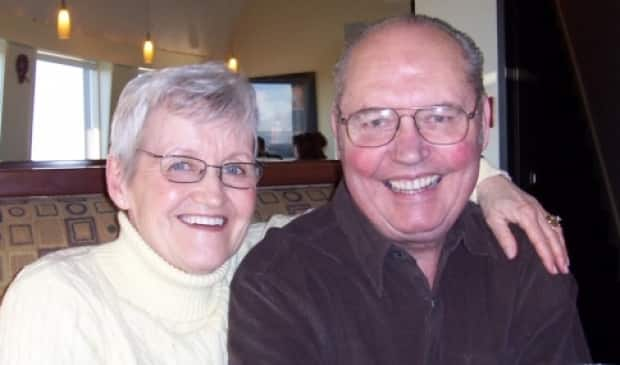
For one year, Albertans have lived in the shadow of a global pandemic, watching as an unrelenting virus ebbs and flows — etching itself deeper in our lives.
Alberta announced its first case of COVID-19 on March 5, 2020.
We'd been collectively bracing for that moment. But few could have predicted the weight of what was to come.
There have been 1,911 lives erased and countless others scarred as COVID-19 unleashed itself in nursing homes, kept loved ones separated and altered futures in untold ways.
Loved ones lost
White paper angels tacked on door after door.
The chilling sight shook Nina Vaughan as she walked through the Calgary nursing home where her 82-year-old father lay dying. She was allowed in to say goodbye after he suffered for weeks alone in his room.
It's a memory that still haunts her.
"Every time somebody died, they put a piece of paper on the door with an angel on it. And walking down the hall and seeing all those doors with angels."
Vaughan paused and took a deep breath.
"It really shows you how empty it was and how many people had passed away."
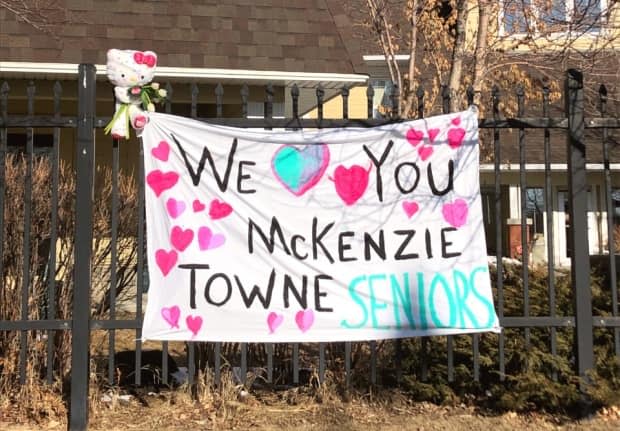
Nearly two-thirds of Alberta's COVID-19 deaths (1,215 of the 1,911) have been in continuing care.
The McKenzie Towne Continuing Care Centre was the site one of the province's earliest outbreaks. It resulted in 111 cases including 20 deaths.
"It became apparent pretty quickly that the facility really wasn't prepared for an outbreak like that. I don't think our country was prepared for an outbreak like that," said Vaughan.
Her father, aunt and uncle all lived at the centre. Just a few weeks after it was locked down last March, all three had contracted the virus.
By early April, Nina's aunt was gone, her death directly attributed to COVID-19.
Nina's father, Lorne Vaughan, died in May.
"[My dad] was so weak by that time — and had lost so much weight and wasn't eating and wasn't even able to sit up by himself anymore — that his heart just couldn't fight it any longer."
Lorne was never counted in Alberta's COVID-19 death statistics, according to Nina, because he was taken off oxygen and deemed "recovered" a week before he died.
The 82-year-old — who had Parkinson's but no known heart problems — ended up back on oxygen a few days later.
"It really makes me wonder how many people, like my father … lingered beyond when they were considered recovered from COVID and then ultimately passed away," she said.
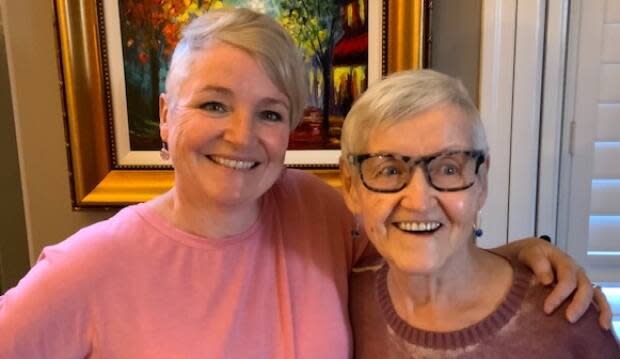
Nina's uncle died in December. His health slowly failed during the months following his diagnosis.
"It's been a tough year," said Dot Vaughan, Nina's mother.
By the end of 2020, she had lost her husband of 59 years, her twin sister and her brother-in-law.
"I have my moments. And sometimes I'll cry uncontrollably," she said. "Now I'm the only one left of my family."
Dot, who has endured her own long bouts of isolation, prefers not to dwell on the pain.
She guards the memory of her husband with a mix of humour and down-to-earth realism.
"He never, ever complained," she recalled with a laugh.
"[He always said] that you have to play the hand your dealt, even if it isn't a good one."

A year of loneliness and isolation
During the last few months of Naomi Charles's life, she would plead with her family to take her home.
Her nursing home was locked down as Alberta battled its second wave of COVID-19.
But dementia kept Charles, 92, from grasping why she was alone.
She died on Feb. 22, 2021.
"This is what COVID has done. Within a year she's gone from being strong and able to do things for herself to [being] gone," said Ruth Dantes, Charles's daughter.
I think she basically gave up.
- Ruth Dantes, speaking about her mother
Charles moved into Millrise Seniors Village in the fall of 2019 after several strokes left her with early signs of vascular dementia. At the time, the former school principal was still spry.
"She was a very strong woman and family was a very integral part of her lifestyle," said Dantes, who visited regularly.
Just a few months later, the facility was battling an outbreak and was closed to visitors.
Charles survived a COVID-19 infection. But in the months to follow, her health deteriorated and she was treated for depression. Dantes says she was concerned about her mother's care and moved her to another facility last summer.
Then, more lockdowns in December. There were no visits over Christmas. According to Dantes, her mother's dementia left her confused and feeling abandoned.
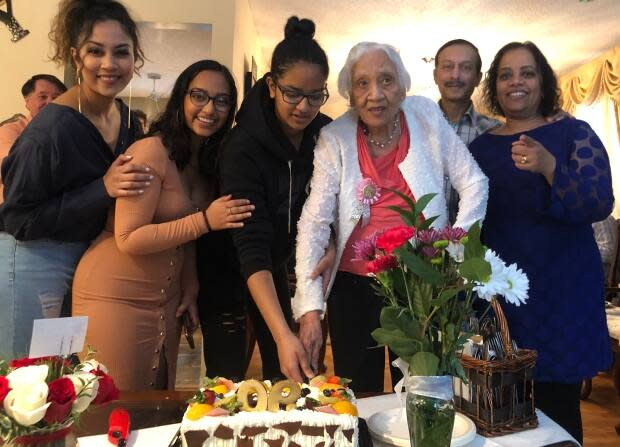
A zoom call on her 92nd birthday in January was particularly hard.
"All that you could hear her say is, 'It's my birthday, take me home. Take me out of here,'" said Dantes.
A few weeks later — when it became clear Charles was dying — family visits were allowed.
"I think she basically gave up. And she decided I'm not eating and there's no point in me living," recalled Dantes.
"We are a very close-knit family.… And she was missing all that. Being kept in your room all by yourself, what kind of life is that?"
Invisible toll
In the spring of 2020, Dani Pohn, 38, and her wife were fighting what felt like a very bad flu inside their East Village condo.
Pohn was tired and short of breath. She had a searing headache, chest pain and was ultimately diagnosed with COVID-19 on June 9.
The Verve condominium would eventually become the site of Alberta's largest high-rise apartment outbreak with 56 cases, all classified as "recovered."
But Pohn, a respiratory therapist who used to walk several hours a day, is anything but.
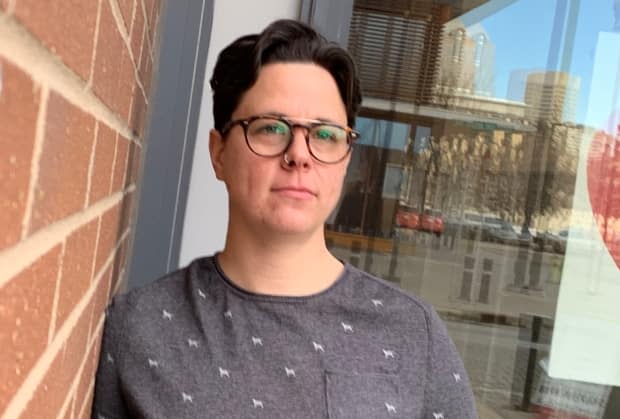
As the virus settled into her lungs, even a short jaunt from the couch to the fridge would trigger exhaustion.
Nine months later, she is still off work and is being treated at a clinic for long-term COVID-19 symptoms.
"It's super frustrating … and at the same time, I know other people are much sicker than I am," said Pohn.
She can walk for short periods now. The extreme fatigue still lingers.
"Its discouraging to be ill in a way that you don't know how to get better," Pohn said.
"I would love to be able to go back to work in a year. But I'm also realistic that that may not happen and I may have to be accommodated to a different type of work."
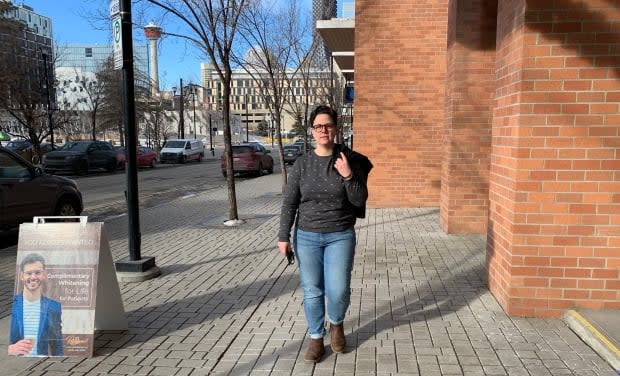
Pohn, like many other Albertans, keeps an eye on the daily COVID-19 statistics. But they don't reflect her experience.
"We need to look past the death numbers. We need to look past the recovered numbers," she said.
"There are a lot of people dealing with these long-term effects that are going to have an untold burden on our health system … and have major consequences for society.
"A lot of lives have been changed."
The year ahead
As the pandemic spills into its second year in Alberta, case counts and positivity rates are starting to climb again, variant cases are mounting and Albertans are living under the threat of a potential third wave.
But there is also promise.
Dot Vaughan, who has lost so much, recently received her second shot of a COVID-19 vaccine.
"A big sigh of relief for sure. You're not instantly safe. But each day that goes by, the vaccine works slowly," she said.
It is a welcome milestone that brings her daughter, Nina, some comfort.
"It does feel like … hope."
